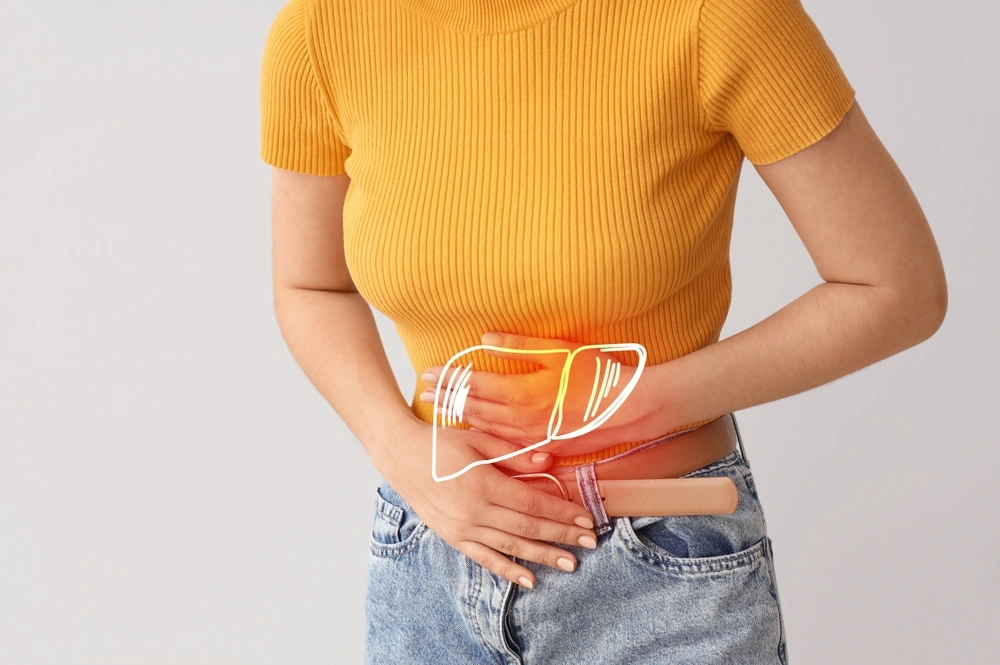
Your liver tirelessly works behind the scenes, detoxifying your blood, producing bile for digestion, storing key nutrients, and helping to regulate your metabolism. But, just as your gut can get overloaded at times, so can your liver.
We are continuously exposed to foods we think are harmless, but they put a lot of stress on the liver. Long-term exposure to certain foods can lead to fat accumulation, inflammation, and chronic liver disease.
Here is a list of seven foods to avoid and why. Let’s explore them!
1. Sugary Drinks & Added Sugar
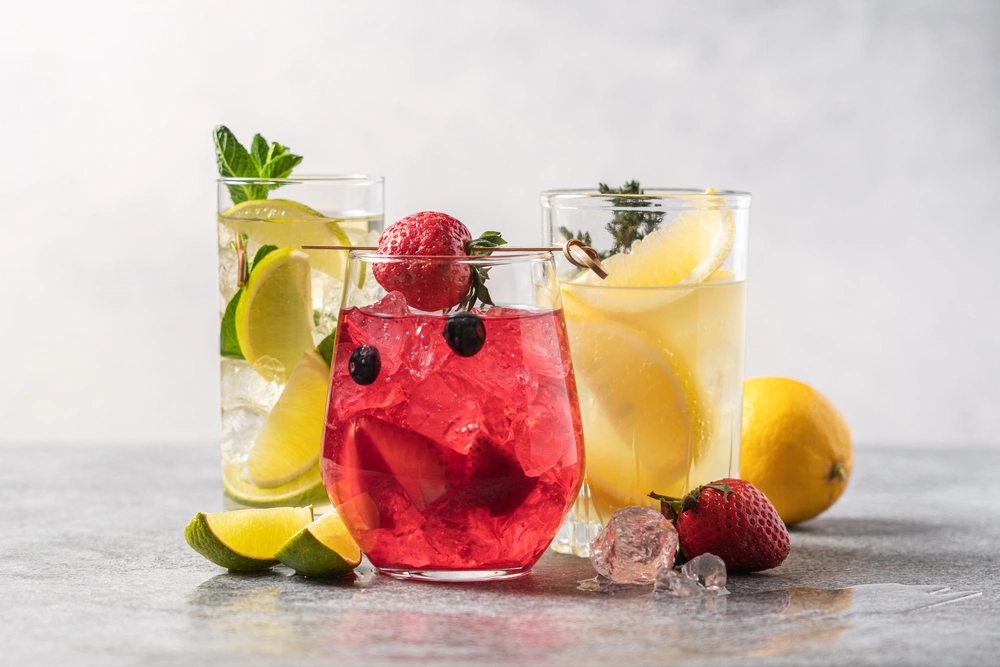
Why it harms: A sugary drink, energy drink, sweetened juice, or dessert introduces fat to your liver by overloading it with fructose, which your liver turns into fat, & that increases non-alcoholic fatty liver disease.
Better Swap: Water, sparkling water with lemon, or unsweetened tea.
2. Alcohol
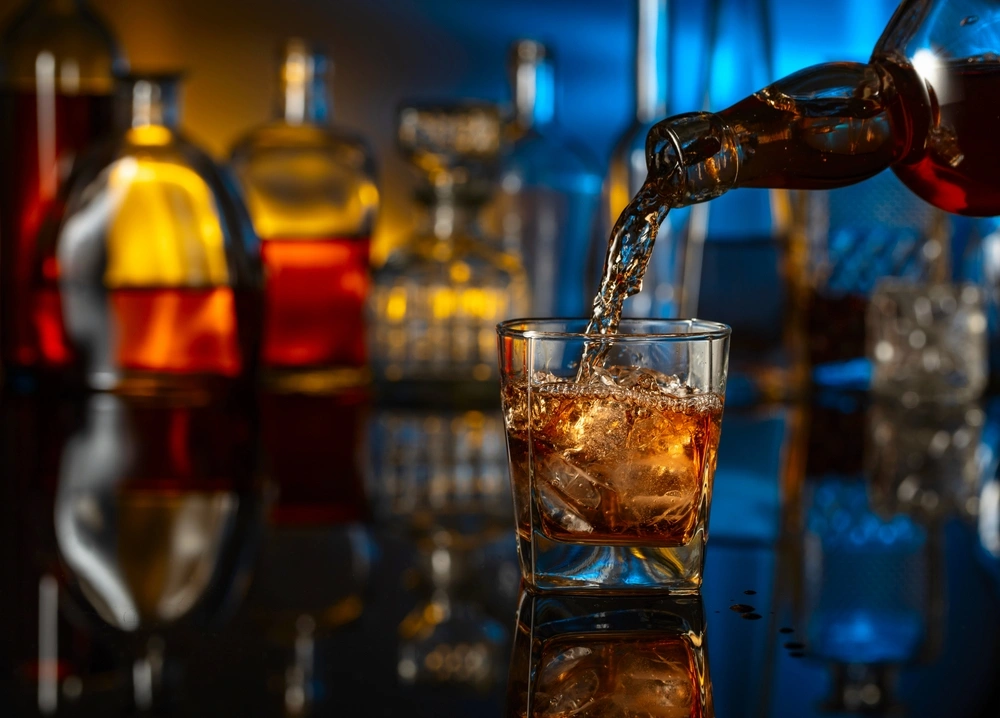
Why it harms: Even moderate amounts of alcohol can cause some liver damage or, at a minimum, inflammation. The more alcohol, the greater the inflammation leads to chronic liver illness, including alcoholic hepatitis, fibrosis, or cirrhosis (stages of liver disease).
Better Swap: If you consume limited alcohol, you can keep it on the menu. However, if you are serious about your liver, eliminate alcohol to help it recover.
3. Fried & Fast Foods
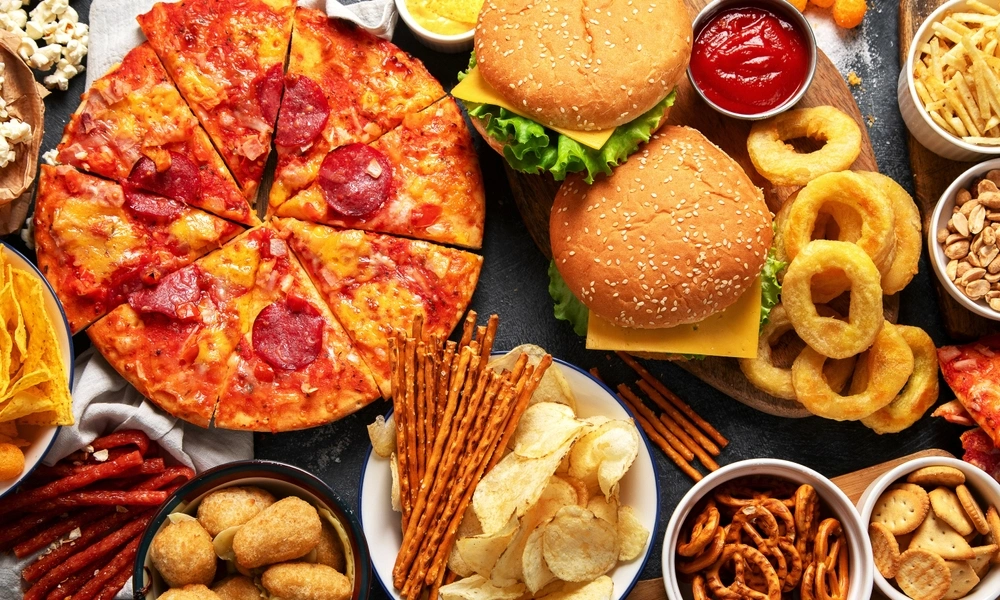
Why it harms: Fried foods are often high in unhealthy trans fats and saturated fats, which directly burden the liver & increase triglyceride (lipid or fat ) levels, leading to heart diseases.
Better Swap: Grill, steam, bake, or air fry your food using healthy oils such as olive oil or avocado oil.
4. Processed & Red Meats
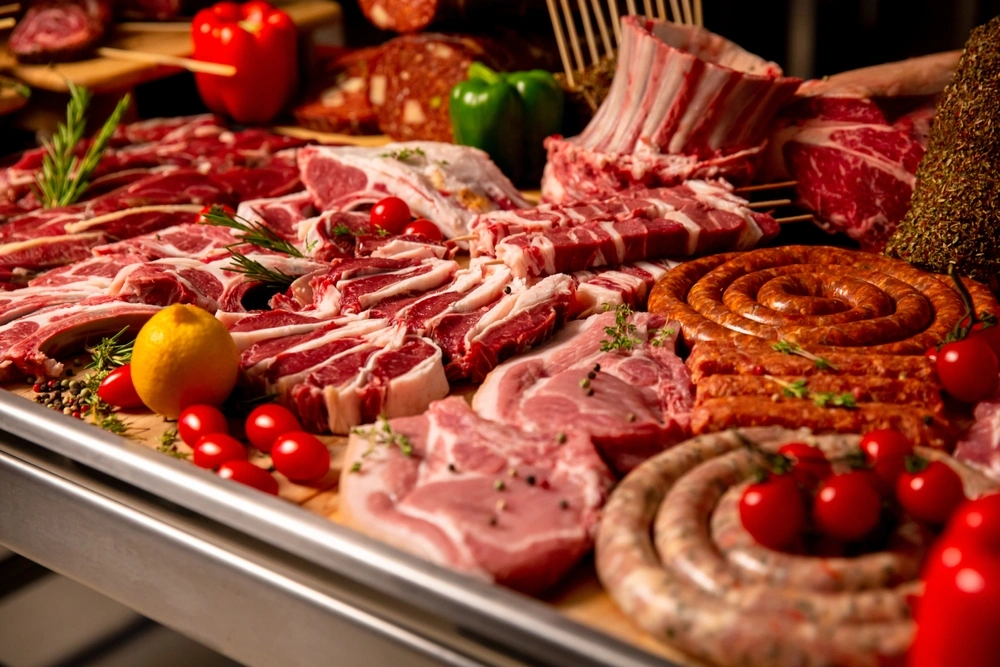
Why it harms: Processed meats (e.g. salami, bacon, sausages), & red meats deliver a huge amount of saturated fat, sodium, & carcinogens that promote fat deposition and inflammation.
Better swap: Lean poultry, fish, legumes, or plant protein.
5. Refined Grains & Trans Fats
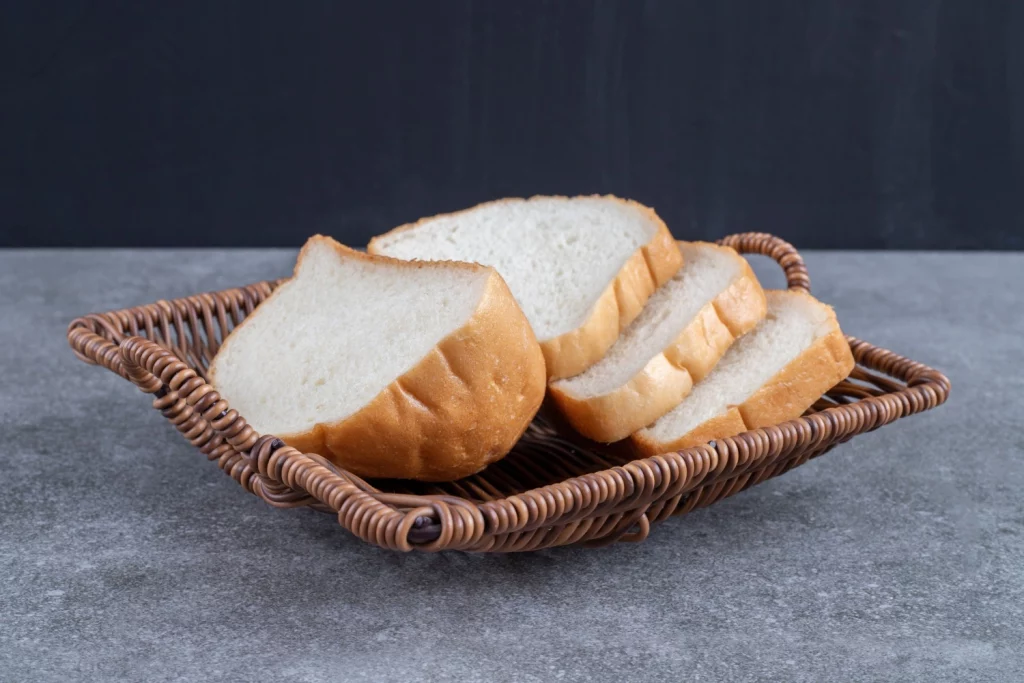
Why it harms: White bread, & pastries with trans fats are void of nutrition, the downside is greater liver fat deposition.
Better swap: Whole grains like oats, barley, quinoa, & no margarine (oil-free is preferable, if not, no hydrogenated oils).
6. High Sodium Processed Food
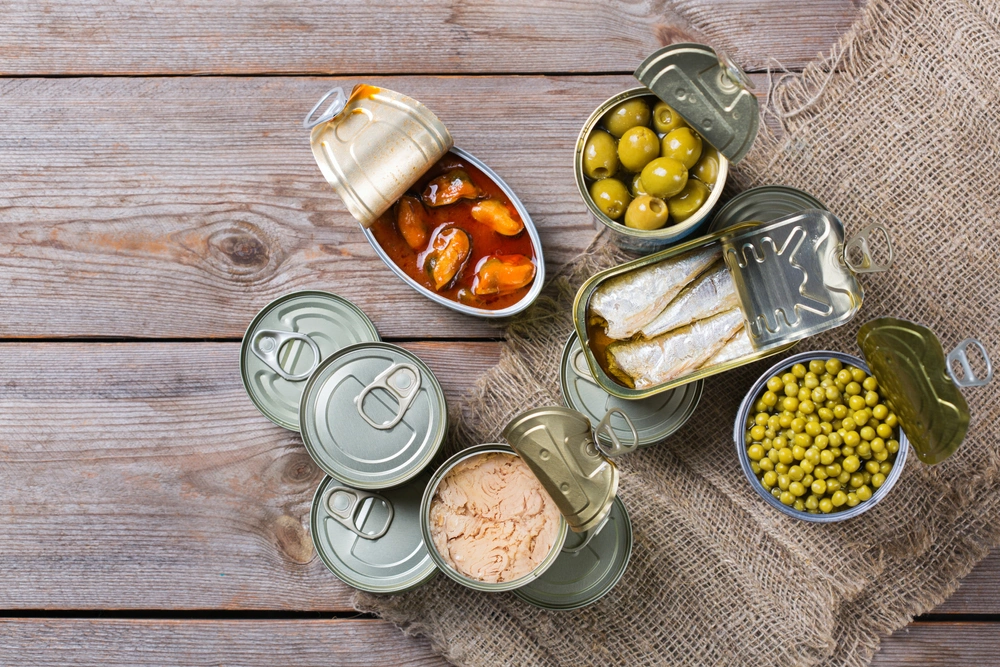
Why it harms: Canned soups, pickles, meats, & instant noodles put more strain on the liver than necessary, & increase blood pressure. High salt concentration increases liver inflammation.
Better swap: Cook food yourself at home, season with small amounts of herbs & spices, & less salt when necessary.
7. Omega‑6 Seed & Vegetable Oils
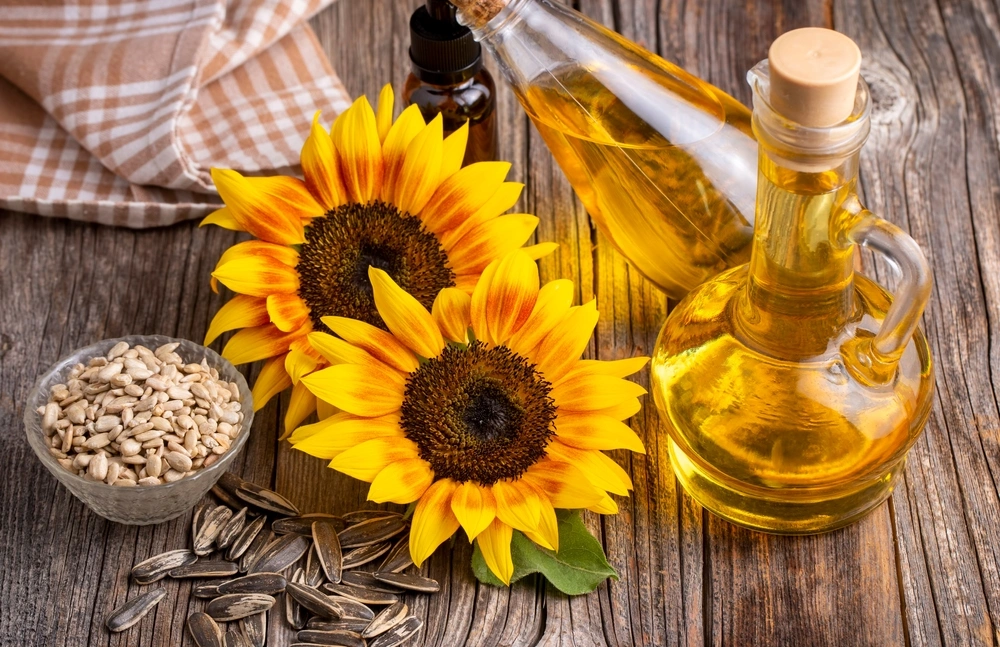
Why it harms: Soybean oil, corn oil, & sunflower oil contain excessive omega‑6 fats. When used excessively, it can increase inflammation & liver stress.
Better swap: Use olive oil, avocado oil, or natural fat sources (i.e., nuts and seeds).
How to Support Your Liver Health
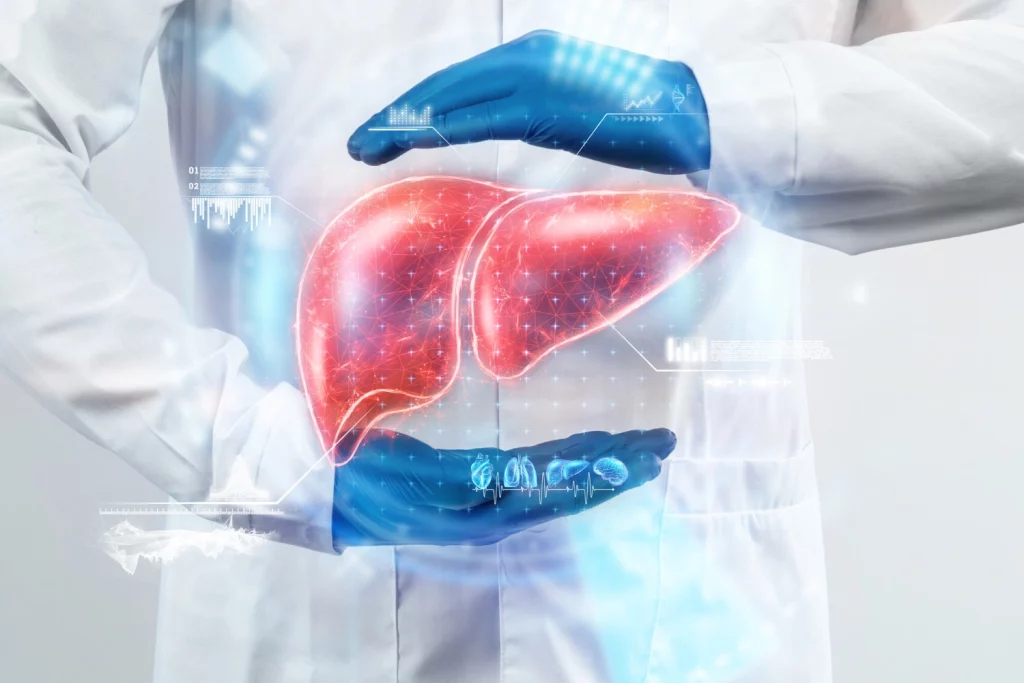
-Whole foods: Add fruits, veggies, lean proteins, legumes, and whole grains into your diet.
-Healthy fats: Include omega-3-rich foods; fatty fish, nuts, and olive oil.
-Water: Hydration is vital as it supports the detoxification pathways. Therefore, stay hydrated.
-Limit or avoid alcohol & sugar intake.
-Exercise regularly: Exercise can promote liver fat reduction,& improve the liver’s metabolic function.
-Mindful eating: Be aware of portion sizes & avoid ultra-processed foods.
Final Takeaway
The liver does more than detox. It’s also the source of many body processes, such as energy and skin clarity, digestion, and hormone regulation. While the liver may not love all the foods here, replacing your daily fast foods, processed snacks, and diet sodas with whole foods that love your body and liver is what counts. It’s an act of self-care, and it adds up.
Be deliberate, be gentle, and if anything feels off, ask your healthcare provider for a check-up. Protecting your liver today means protecting your future.
FAQs
-What are the early signs of liver damage?
Early signs of liver damage can include fatigue, abdominal discomfort, yellow eyes or skin (jaundice), and unexplained weight loss, among other signs and symptoms. You should speak with your healthcare provider if you have concerns about your liver health.
-Can you reverse fatty liver with diet only?
While there are stages of liver health (and disease) to consider, you have a good chance of reversing fatty liver (nonalcoholic fatty liver) through lifestyle interventions such as diet, exercise, and weight loss in the early stages.
-Is coffee healthy for your liver?
Yes! According to studies, drinking moderate amounts of coffee (2–3 cups/day) may help reduce liver inflammation and lower the risk for liver fibrosis and cirrhosis.
– How often should liver function tests be performed?
If you have risk factors for liver disease, such as obesity, alcohol use, or metabolic conditions, it is a good idea to have one annually or have one sooner if you have symptoms.
-Which foods can help repair the liver?
Milk, fish, eggs, tofu, nuts, and seeds. Fruit (fresh or tinned, low sugar), vegetables such as beans, legumes & wholegrains are the best foods to repair the liver.
-What foods should you eat if you have fatty liver?
Foods full of fiber and antioxidants, such as leafy greens, garlic, walnuts, fatty fish like salmon, and green tea, help your liver detox and inhibit and support liver function.
-What foods should you avoid if you have fatty liver?
You should avoid sugar-sweetened drinks, fried foods, red meat, white bread, refined carbs, and alcohol. These items stress the liver and encourage fat accumulation in the liver, which can lead to inflammation and liver damage.
(The article is written by Deepa Sarkar, Medical Writer, and reviewed by Monalisa Deka, Senior Health Content Editor)
Recommended Reads:
-The Japanese Diet: A Promising Approach To Fight Fatty Liver Disease
–How To Keep Your Liver Healthy: 8 Tips You Need To Know
References:
Geidl-Flueck B, Hochuli M, Németh Á, Eberl A, Derron N, Köfeler HC, et al. Fructose- and sucrose- but not glucose-sweetened beverages promote hepatic de novo lipogenesis: A randomized controlled trial. J Hepatol [Internet]. 2021;75(1):46–54. Available from: http://dx.doi.org/10.1016/j.jhep.2021.02.027